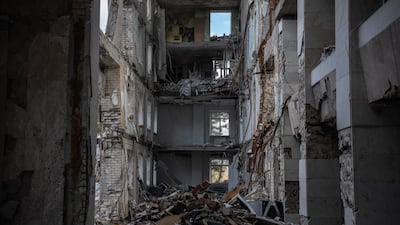A Russian court fined the founder of Wikipedia for publishing articles about the war in Ukraine.
The US-based Wikimedia Foundation, which established Wikipedia in 2001, was fined two million Russian roubles on Tuesday, about $32,600, for refusing demands to remove articles on Russia's special military operation in Ukraine.
It said it was imposing the fines for a “failure to remove information prohibited in Russia”, according to a report published by Interfax news agency.
The two Russian-language articles were titled “Non-violent resistance of Ukraine's civilian population in the course of Russia's invasion” and “Evaluations of Russia's 2022 invasion of Ukraine,” Stanislav Kozlovsky, the foundation's head in Russia, told Reuters.
The foundation will appeal the ruling.
It was fined 5 million roubles in April on similar charges, with Russia claiming articles on the invasion and the Bucha massacre were fake.
In July, search engines in Russia were ordered to inform users Wikipedia had broken Russian law by failing to remove articles on Ukraine.
With the silencing of much of Russia's independent media after the invasion of Ukraine, Wikipedia became one of the last available sources of fact-checked information on the war available to Russians.
Russia has also criminalised labelling its February offensive as an invasion or war.
Ukraine grain deal
Also on Tuesday, ships carrying Ukrainian grain left Black Sea ports for a second day after Russia withdrew from a UN-brokered export deal on Saturday.
Three ships had left by noon and their departures were agreed upon by the UN, Ukrainian and Turkish delegations, a UN-led co-ordination centre said.
Russia pulled out of the deal after what it called a terrorist attack on its ships off the Crimean coast.
The UN accused Russia of “weaponising food”, while Ukraine said it shows the “transparent intention of Russia” of enacting larger-scale famine.
Before the February invasion, Russia and Ukraine together accounted for about a third of global wheat exports.
Russia's offensive sparked widespread fears of global food insecurity, with the price of basic food items skyrocketing in many countries.

